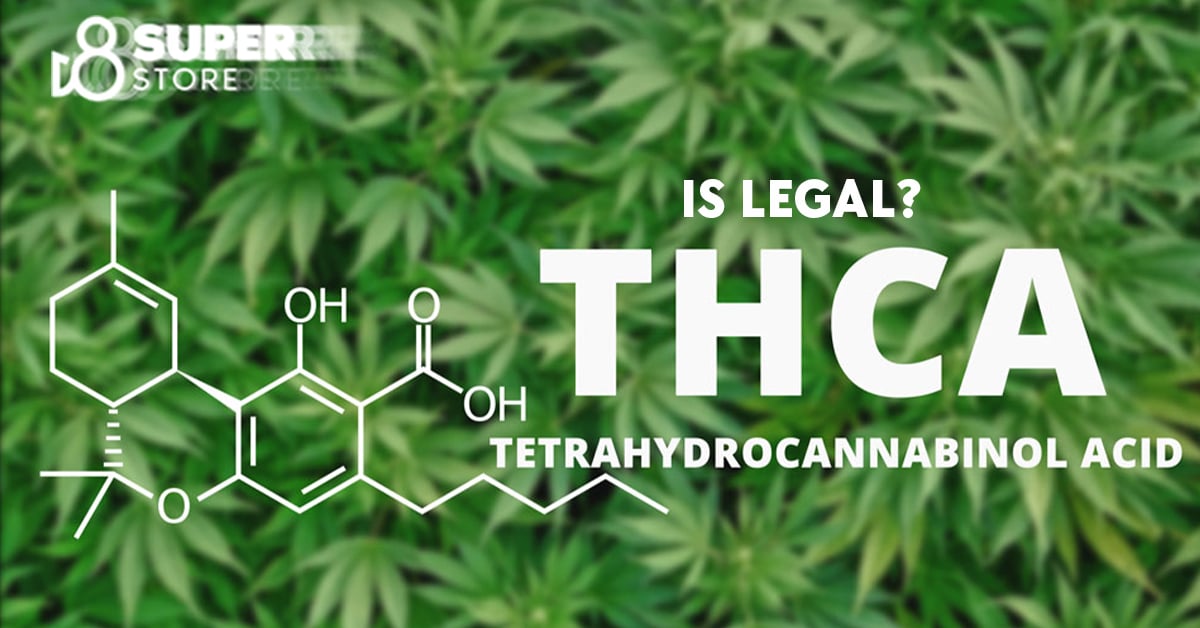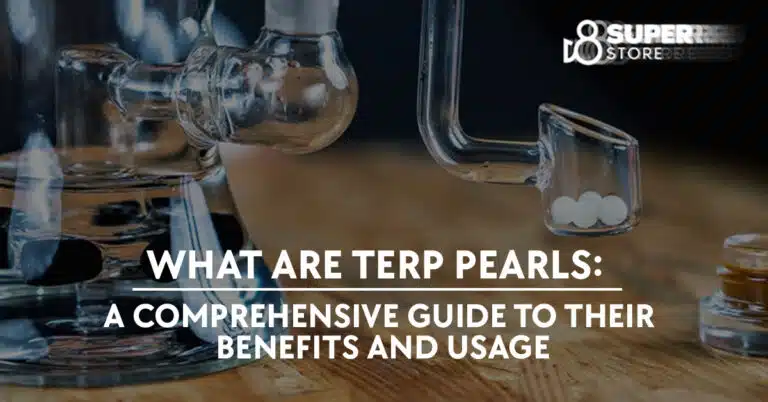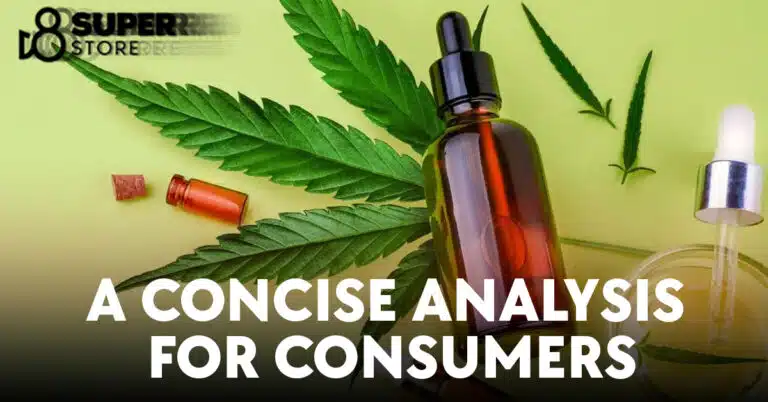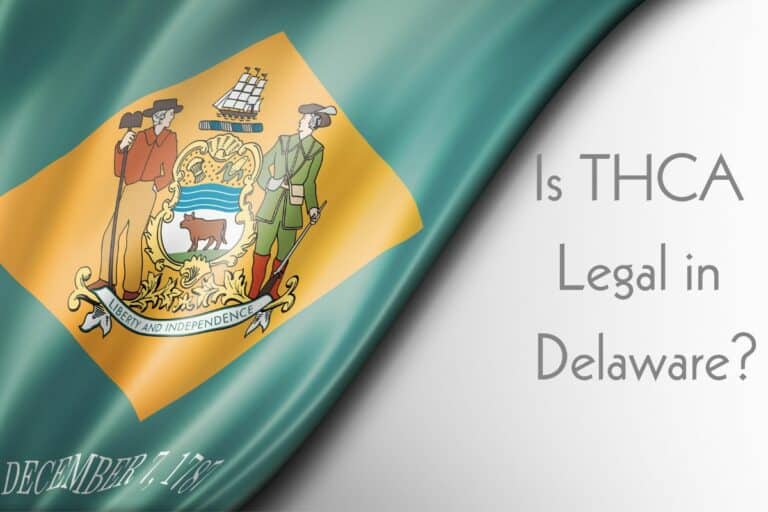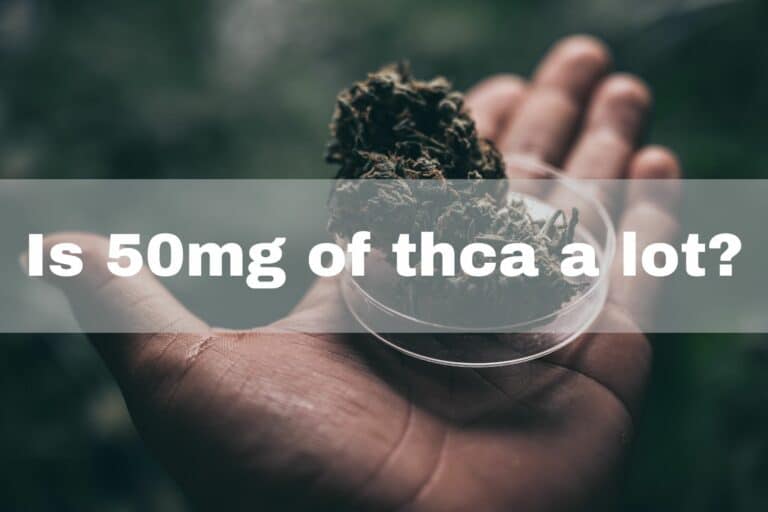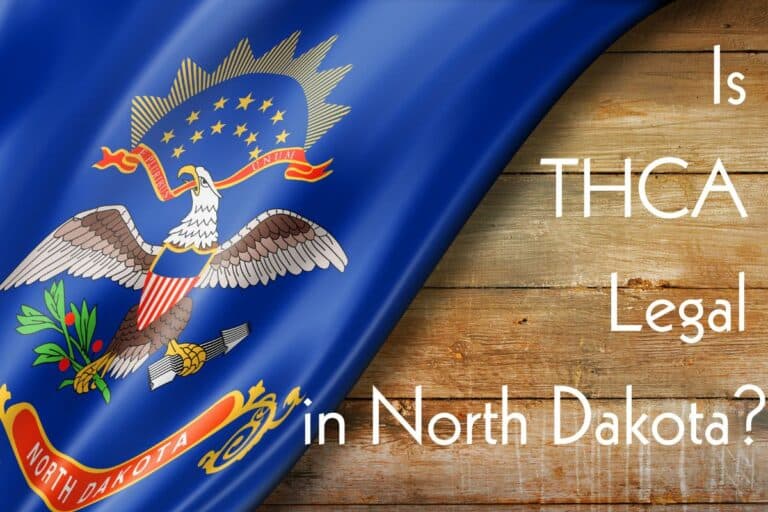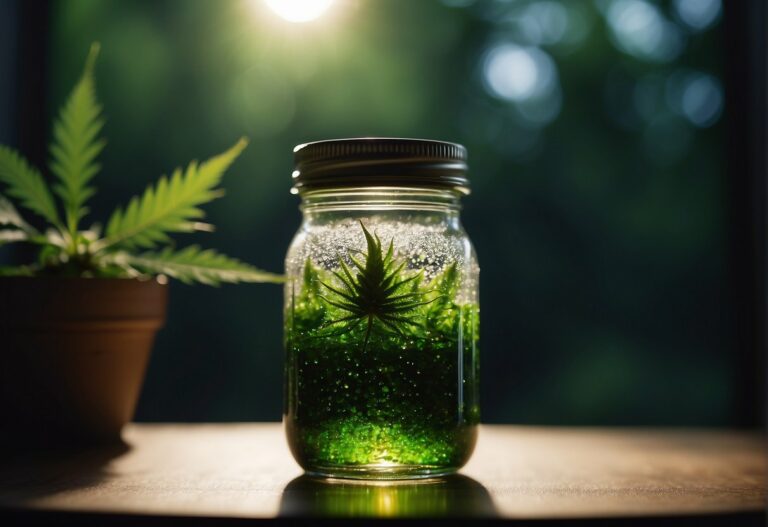Is THCa Legal? Understanding the Regulations Surrounding Tetrahydrocannabinolic Acid
THCa lounges around in fresh-off-the-plant cannabis, and it doesn’t have what it takes to send you flying high. But give it some air to breathe or a little heat, and voilà, THCa morphs into THC, the wonder ingredient behind the laughs and good vibes. The folks up in government offices keep a strict eye on THC to decide if cannabis is playing by the rules. THCa, though? It’s sort of stuck in a legal gray area, a precursor to THC. Eager to crack this mystery wide open? Hang tight because you’re on the verge of diving deep into a secret not many know about.
Table of contents
The legal status of THCa can be complex, as it varies by jurisdiction. In certain areas, cannabis laws have evolved to focus on the decarboxylated forms of the compound—namely THC—since this is what produces psychoactive effects when consumed. This specific focus means that raw, unprocessed cannabis plants containing THCa might not be regulated in the same way.
However, under United States federal law, all cannabinoids derived from the cannabis plant, including THCa, are considered Schedule I substances. Despite this, you’ll find a different landscape at the state level, where a number of states have legalized cannabis for medical or adult use, potentially allowing for lawful possession of THCa within their jurisdictions. Additionally, the determination of THCa’s legal status may also relate to how it is distinguished from THC during law enforcement testing and in the discussion of hemp vs. marijuana. It is imperative to know the laws specific to your region, as they can significantly influence the legality of THCa and THC.
Overview of THCa
THCa, or tetrahydrocannabinolic acid, is the non-psychoactive precursor to THC found in raw and live cannabis. Understanding its chemical structure, psychoactive potential, and medical benefits is essential when considering its legal status and usage.
Chemical Structure of THCa
THCa is chemically similar to THC, but with a crucial difference: it sports an additional carboxyl group. This means that THCa is in its acidic form, while THC is in its neutral form. When cannabis is exposed to heat or UV light, THCa decarboxylates to become THC, the compound known for its psychoactive effects.
Comparison with THC
Unlike THC, THCa is not psychoactive. This is because THCa does not readily bind to CB1 receptors in your brain, which are responsible for the psychoactive effects associated with THC. When you consume cannabis, it’s the process of decarboxylation through heat that converts THCa into psychoactive THC.
Psychoactive Potential of THCa
THCa itself doesn’t produce the “high” associated with cannabis. Therefore, consuming raw cannabis won’t have the same effects as consuming cannabis that has been heated, such as through smoking or vaporizing. THCa only becomes psychoactive after conversion to THC, a transformation that typically occurs through heating.
Medical and Therapeutic Benefits
Research suggests that THCa has therapeutic potential, including anti-inflammatory and neuroprotective properties. It might benefit conditions like epilepsy, chronic pain, and neurodegenerative diseases. However, since it’s non-psychoactive, THCa can offer these potential benefits without the mind-altering effects of THC.
Legal Landscape of THCa in the United States

The legal status of tetrahydrocannabinolic acid (THCa) in the United States is nuanced, involving an interplay between federal and state laws. Understanding this legal terrain is critical for staying compliant with the regulations that govern THCa.
Federal Legal Framework
At the federal level, your understanding of THCa’s legal status begins with its classification. THCa, being a non-psychoactive precursor to THC (tetrahydrocannabinol), is not explicitly listed under the Controlled Substances Act. However, because it can be converted to THC, which is a Schedule I substance, federal agencies may regulate THCa under the analogue provisions.
The 2018 Farm Bill and Hemp
The 2018 Farm Bill is pivotal in defining the legality of cannabis-related substances by distinguishing between marijuana and hemp based on THC content. Hemp and its derivatives with less than 0.3% THC on a dry weight basis are federally legal. As such, if THCa comes from hemp and stays within this THC threshold, it’s generally regarded as lawful under federal law.
Controlled Substances Act Implications
The Controlled Substances Act (CSA) casts a shadow over the cannabis industry, given its stance on THC. The Act’s implications for THCa are inferred because although THCa itself is not psychoactive, its potential to convert into THC places it in a gray legal area. Observing the DEA’s regulations, you must consider how THCa is sourced and handled to mitigate legal risks at the federal level.
State-Level Regulations and Variations
State regulations can widely vary where THCa is concerned. With each state having the autonomy to set their own drug policies, you may find states where THCa is explicitly allowed, strictly regulated, or not addressed at all. This creates a patchwork of rules, making it essential to research and adhere to the legal status as per state regulations, especially when it involves the sale or distribution of THCa-containing products.
Remember, while federal regulations provide a baseline, state laws on THCa can either align with or differ significantly from federal guidelines, impacting the compound’s legal status on a local scale. Stay informed and ensure any transactions or use of THCa comply with both Federal and State law to navigate this complex legal landscape.
THCa Regulation and Enforcement
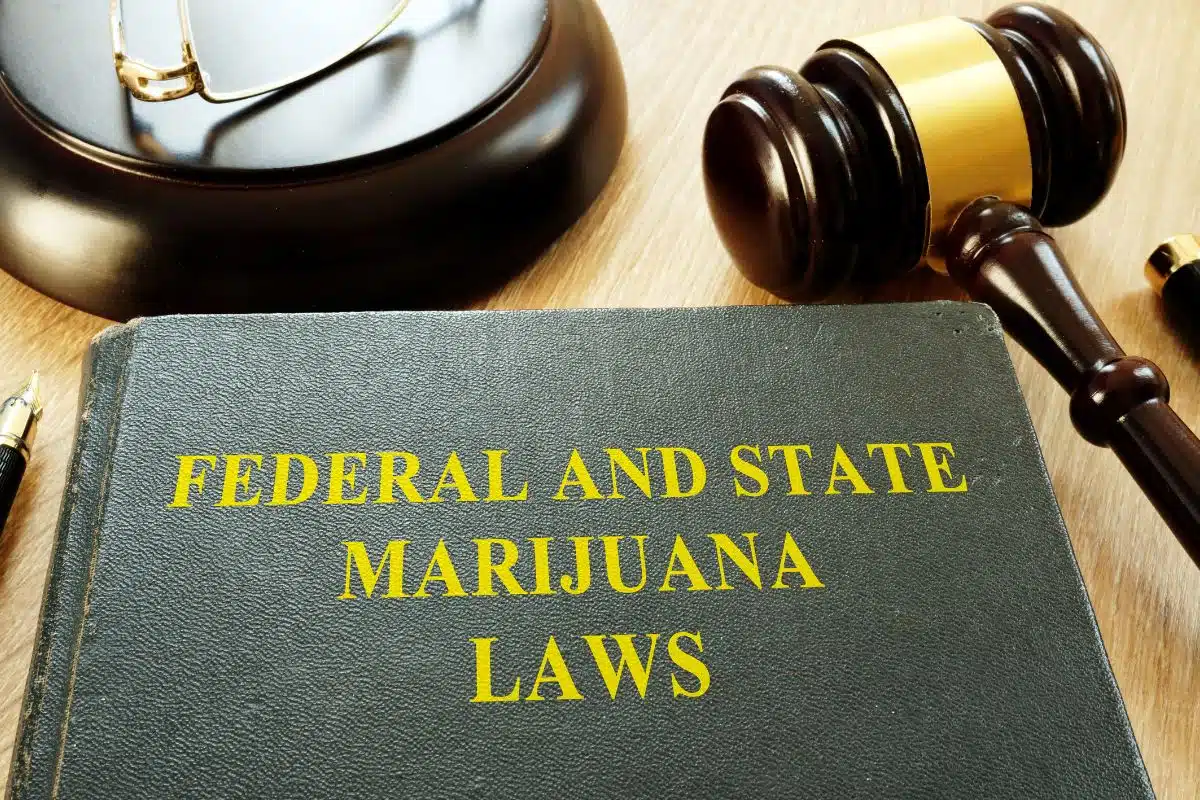
When navigating the complex landscape of cannabis regulation, it’s important to understand that THCa (tetrahydrocannabinolic acid) is subject to varying degrees of enforcement and regulatory oversight at both federal and state levels. Factors such as how THCa is tested and whether it has been converted to THC play a critical role in its legal status.
Role of DEA in Cannabis Enforcement
The Drug Enforcement Administration (DEA) is the primary federal agency responsible for enforcing the regulations on controlled substances, including cannabis and its derivatives. Even though tetrahydrocannabinolic acid (THCa) itself is not scheduled as a controlled substance, the DEA’s enforcement actions often hinge on whether THCa is considered to be a precursor to delta-9 THC, which is a Schedule I controlled substance under federal law. Your understanding of the DEA’s authority will shape how you comply with cannabis-related business practices.
Testing and Compliance
Your products must undergo rigorous testing to ensure compliance with legal thresholds. These testing procedures determine the concentration of THCa and delta-9 THC. Since THCa can convert to THC, which is a controlled substance, the precise measurement of these compounds is crucial for your product’s legal status. The 0.3% THC legal threshold is a standard you must be familiar with, and maintaining compliance involves adhering to this limit strictly.
- Compliance Tip: Ensure your lab tests include accurate THCa measurements to avoid legal pitfalls.
Differences in State Enforcement Practices
You’ll find significant differences in how states enforce cannabis regulations. In states with legal recreational cannabis, THCa may be regulated differently compared to states where cannabis remains illegal. For instance, some states might focus enforcement on post-decarboxylation levels of THC, which affects how THCa is treated. It’s essential to be aware of the state-specific cannabis enforcement practices to navigate the complex regulatory environment successfully.
- Example: Certain states may allow for alternative remediation techniques if THCa levels are high, while others might require destruction of non-compliant products.
Remember, while staying informed on federal guidelines, you must also pay close attention to the evolving state laws to ensure your activities remain within the bounds of both sets of regulations.
Commercial and Recreational Use of THCa

THCa, or tetrahydrocannabinolic acid, is a non-psychoactive cannabinoid found in fresh cannabis plants. As you navigate the evolving landscape of cannabis products, understanding THCa’s place in the commercial and recreational market is crucial.
Availability of THCa Products
THCa is present in hemp-derived and cannabis products that have not been decarboxylated, commonly found in pre-heat or raw forms. These THCa products range from raw cannabis juices to tinctures, all designed for consumers looking for the properties of cannabinoids in their acid form. In the market, the sale of these products is usually subject to state-specific cannabis regulations.
Legality of THCa for Recreational Purposes
Recreational cannabis laws vary by state, and accordingly, so does the legality of THCa. In states where recreational use is legal, you can typically find THCa products available. However, it is essential you check your local laws as they could affect the sale and possession of these items. It’s important to understand the distinction between THC and THCa: THCa only converts to the psychoactive THC upon heating, which can complicate legality.
Market for Hemp-Derived THCa
The market for hemp-derived products tends to be more accessible due to federal legalization of hemp with THC levels below 0.3%. Hemp-derived THCa fits into a complex niche, with many products potentially available both in-store and online. If you’re looking to purchase these products for recreational purposes, always verify the reliability of the source to ensure compliance with local and national laws.
State-specific Guidance on THCa

Before diving into the legal specifics of tetrahydrocannabinolic acid (THCa) in different states, it’s crucial to recognize that THCa is a non-psychoactive precursor to delta-9-tetrahydrocannabinol (THC), the primary intoxicating component of cannabis. The legality of THCa can differ from the legality of THC and is governed by individual state laws and regulations.
Arkansas
In Arkansas, your possession and use of THCa are subject to medical cannabis laws. If you are a registered patient with a qualifying condition and have a medical marijuana card, you may lawfully purchase and use medical cannabis products that may contain THCa. However, these products must be obtained from a licensed dispensary.
California
As a resident or visitor in California, you are subject to very progressive cannabis laws. The state permits the legal use of cannabis for both medical and recreational purposes. This extends to THCa, which can be lawfully purchased from licensed dispensaries as long as you are of legal age, which is 21 or over.
Florida
In Florida, THCa is legal within the medical marijuana program. You are required to have a registry identification card and a physician’s recommendation to legally purchase and use marijuana products containing THCa. Keep in mind that recreational cannabis remains illegal, so all purchases must be made through licensed medical marijuana treatment centers.
Oregon
If you’re in Oregon, you have access to THCa under both medical and recreational cannabis laws. Adults aged 21 and older can buy THCa products from licensed retailers without any special permissions. Moreover, registered medical marijuana patients have access to a broader range of products with different concentrations of THCa.
Washington
Washington state law mirrors that of Oregon to a large extent; you may legally purchase and possess THCa products if you are 21 years of age or older. This state has also legalized both the medical and recreational use of cannabis, consequently expanding lawful access to products containing THCa.
Remember that regulations around cannabis and its derivatives like THCa can change rapidly, and it’s important to stay informed about current laws to ensure compliance.
Potential Loopholes and Areas of Ambiguity
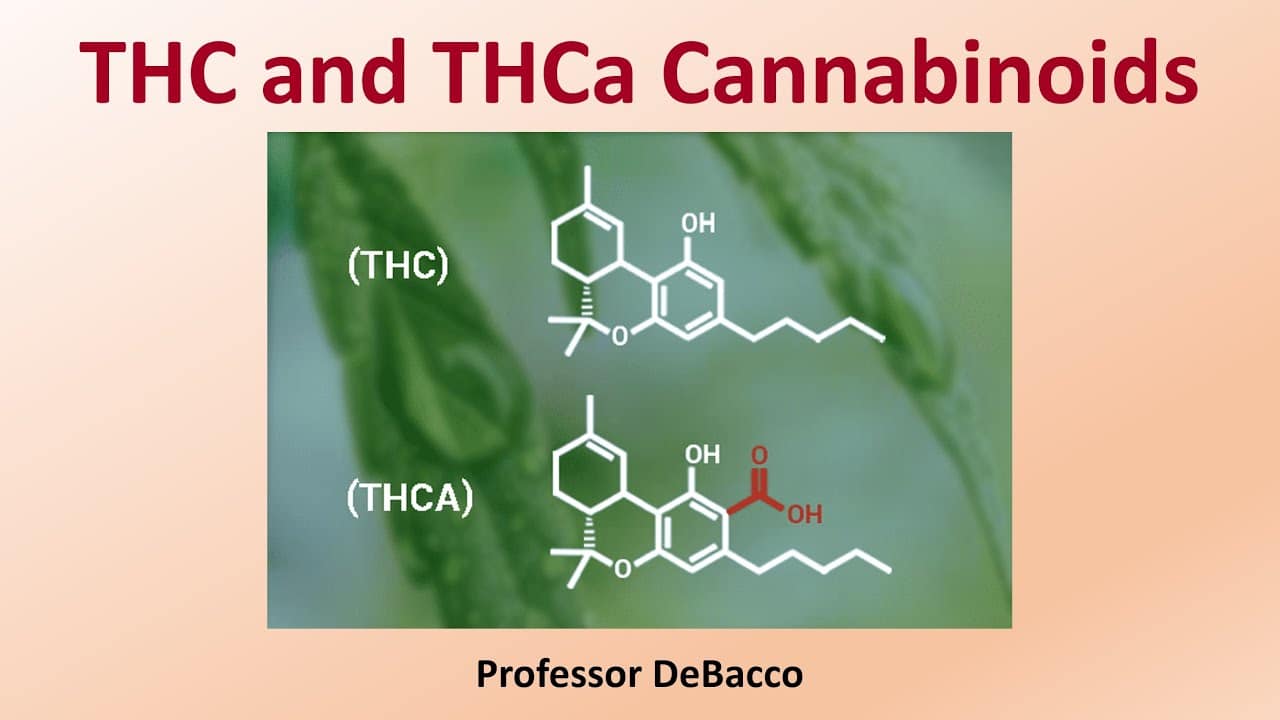
Navigating the complexities of tetrahydrocannabinolic acid (THCa) legality, you’ll encounter certain loopholes and areas of ambiguity that hinge on definitions, chemical conversion processes, and individual state versus federal regulations.
THCa and the Dry Weight Basis
Legal hemp is defined by its delta-9 THC content, specifically that it doesn’t exceed 0.3% on a dry weight basis. THCa is a non-psychoactive precursor that can convert to delta-9 THC when exposed to heat, a process known as decarboxylation. Due to this, products containing THCa might technically meet the dry weight criterion for legal hemp yet still have the potential to produce psychoactive effects, creating a loophole that complicates regulation and enforcement.
Delta-9 THC Content and Legal Loopholes
The 2018 Farm Bill federally legalized hemp and hemp-derived compounds with the stipulation that delta-9 THC content does not surpass the 0.3% threshold. However, this legislation did not explicitly regulate THCa content, which can convert into delta-9 THC upon consumption. Some entities take advantage of this omission, marking a glaring legal loophole because the actual psychoactive potential of these products can far exceed the legal intent of hemp-derived products.
Case Studies of Legal Ambiguity
A case study highlighted in the journal “The Insurance Industry’s Cannabis Problems” demonstrates the legal challenges in interpreting regulations surrounding cannabis products. Another example is the “Forensic Identification of Marijuana,” which illustrates ambiguities in the scheduling of cannabis and its derivatives. Both underscore the pressing need for updated legislation or judicial clarifications that can more accurately reflect these chemical complexities within the evolving landscape of cannabis laws.
Understanding the Impact of Heat on THCa
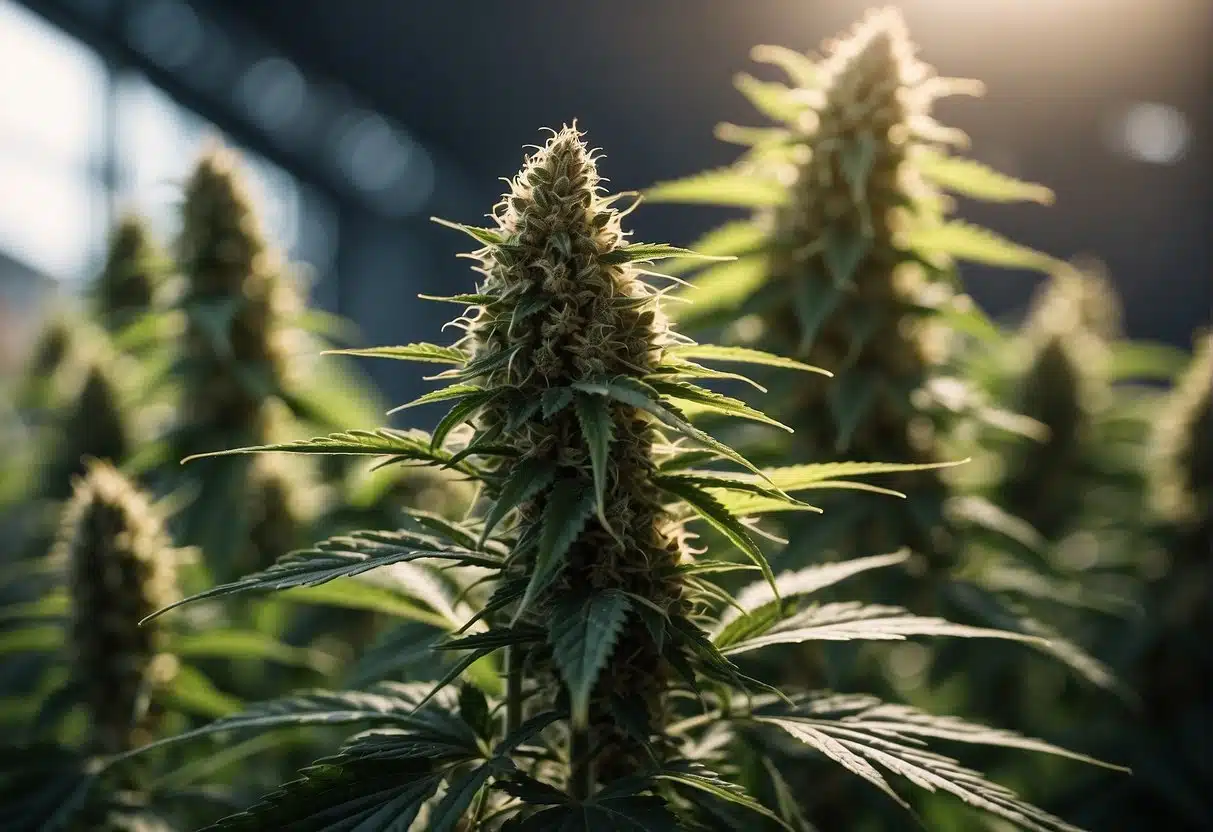
When you apply heat to tetrahydrocannabinolic acid (THCa), a non-intoxicating compound found in cannabis, it transforms into the psychoactive tetrahydrocannabinol (THC), a process known as decarboxylation. This reaction is central to how cannabis products are produced and consumed for their psychoactive effects.
Decarboxylation Process
Decarboxylation is a chemical reaction that releases carbon dioxide (CO2) from a carboxylic acid. When you heat cannabis, decarboxylation occurs, converting the acidic form of THC, tetrahydrocannabinolic acid (THCa), into THC. This reaction is not only pivotal for the activation of cannabis’s psychoactive properties but also for its therapeutic ones. The amount of heat and duration of exposure determine the efficiency of this conversion.
- Heat source and temperature: Typically, decarboxylation requires temperatures between 220-245°F (104-118°C), often applied in an oven for a specified period.
- Time: The time required can vary, with many proponents suggesting 30-40 minutes for a comprehensive transformation.
From THCa to THC Through Heat
Though THCa is not psychoactive, the application of heat through methods such as smoking, vaporizing, or baking can convert THCa into THC. The heat effectively removes a carboxyl group from THCa, turning it into its intoxicating counterpart.
- Smoking and vaporizing: When you smoke or vaporize, the high temperatures instantly convert THCa to THC, making it available for consumption.
- Edibles: If creating edibles, you typically need to heat cannabis first to ensure the THCa has converted to THC, ensuring the desired psychoactive effect.
Consumer Safety and Legal Purchasing

When considering the purchase and use of THCa and cannabinoids, you need to be aware of several key points, including FDA regulations, legal considerations, and safety measures to ensure a secure and legally compliant experience.
FDA Regulation on Cannabinoids
The Food and Drug Administration (FDA) plays a crucial role in determining the legality and safety of cannabinoid products. Currently, THCa itself is not scheduled as a controlled substance. However, it’s important for you to understand that any claims made about the therapeutic benefits of THCa or other cannabinoids must be substantiated by scientific evidence and approved by the FDA. For your safety, ensure that any cannabinoid product you consider purchasing has been adequately tested and complies with FDA requirements.
Legal Considerations for Consumers
From a legal standpoint, you must consider both federal and state laws regarding the purchase of THCa products. While the 2018 Farm Bill legalized the sale of hemp-derived products, including cannabinoids with less than 0.3% THC on a dry weight basis, the legal status of THC and its analogs may vary by state. Ensure you are informed about your state’s regulations to ensure any purchase is within legal constraints.
Safe Purchase and Use of THCa
For your safety, it’s vital to purchase cannabinoid products from reputable sources. Quality and potency can vary widely, and products tested for THCa and THC content are essential to ensure consistency and avoid unwanted effects. When using cannabis products, being educated about the product’s contents, including the presence of THCa and THC, will help you make better decisions for a safe experience. Always look for clear labeling that provides this information and guides your usage.
Frequently Asked Questions
This section addresses your key concerns regarding the legality of THCa, its regulations, and its effects within the United States.
What is the legal status of THCa in the United States?
In the United States, THCa is not scheduled at the federal level, but it is a precursor to Delta-9 THC, which is a Schedule I substance according to federal law. As a non-psychoactive compound, THCa’s legal status may vary based on individual state laws and interpretations.
Are there any restrictions on shipping THCa across state lines?
The interstate shipping of THCa is complex, as it can be influenced by both the legal status of cannabis in the originating and receiving states and federal regulations. It may be prohibited if THCa is considered part of the cannabis plant, which is federally illegal to transport across state lines.
Can consuming THCa result in psychoactive effects similar to Delta-9 THC?
THCa is the non-psychoactive precursor to THC and does not produce psychoactive effects when consumed in its raw form. However, when exposed to heat, THCa undergoes decarboxylation and becomes psychoactive Delta-9 THC.
Is it possible for THCa to appear on a drug screening test?
Drug tests typically screen for THC, not THCa. However, since THCa can convert to THC through decarboxylation, which can occur naturally over time or during the process of sample handling and testing, it may potentially lead to a positive drug test result.
What are the specific regulations surrounding THCa in southern states like Georgia and Florida?
In southern states such as Georgia and Florida, the legality of THCa is intertwined with their medical marijuana and hemp laws. Georgia has a low-THC oil registry for certain patients and Florida has a comprehensive medical marijuana program; however, THCa itself may or may not be addressed explicitly in these regulations.
How do THCa laws vary from state to state, such as between California and Texas?
State laws regarding THCa differ significantly across the country. California, with its legalized cannabis market, typically categorizes THCa under cannabis law, while Texas considers THCa and THC equivalent under its Controlled Substances Act, resulting in stricter regulation.

